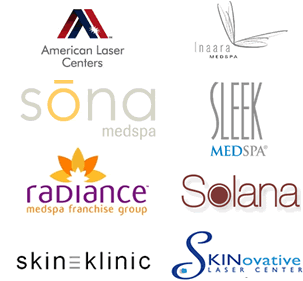Wall Stree Journal Article on Medical Spa Franchises: Medspa boom is a bust for some
/Via Wall Stree Journal. Read the entire article here.
Read the Medical Spa MD series: Inside a medical spa franchise.
Medspa Boom Has Become a Bust for Some
 By RHONDA L. RUNDLE
By RHONDA L. RUNDLENovember 21, 2006
...Medspa ownership turnover generally reflects business stumbles rather than safety issues. Ms. Leavy says many of the troubled spas are affiliated with franchise chains with flawed business models, such as those requiring too much of a franchisee's revenue to go for marketing. (She estimates that about 10% of medspas are franchises, although other industry experts put the percentage at 30% or higher.)Several Sona franchisees, though not Mr. Nebot, are in private arbitration over problems that include misrepresenting a complicated business as a turnkey operation and failing to provide needed support. Sona officials declined to comment.
Several franchisees of Radiance MedSpa Franchise Group PLLC, a franchiser in Scottsdale, Ariz., say the company's financial projections overestimated revenue and underestimated initial start-up costs, including working capital.
The president of Radiance, Charles L. Engelmann, recently said: "There are currently 32 open stores and we will have 47 or 49 open by the end of the year. None of the stores have closed." He also acknowledged that some franchisees are attempting to get their money back.
One common pitfall for medspa operators is the failure to properly account for prepaid services, such as discounted packages of laser or light-based facial treatments. At Mr. Nebot's shop, for instance, clients would routinely pay $1,000 in advance for a package of laser hair-removal treatments to be delivered over a year or more. The shop's rooms were then filled with nurses treating customers who had paid months earlier. Finding new customers with fresh cash was a constant struggle.
Mr. Nebot says he felt like a cartoon character, "running faster all the time but falling further behind." He used radio advertising to draw more clients, moved to a larger space and extended his operating hours. To avoid alienating customers, he gave away free treatments to those who complained that their hair kept growing back after they finished the five-treatment regimen they purchased.
In the wake of the recent legal changes in Florida, some medical-spa owners there must shell out an extra $60,000 a year or so to a dermatologist or plastic surgeon to oversee operations.
"I can't be my own medical director any more, which is an added expense I can't afford," says one Florida physician who is not a dermatologist. He says he is "facing personal bankruptcy and trying my best to get out while there is something left for my family" after miscalculating what it would take to market, advertise and build his business. Indeed, many medspa owners are doctors who hope to make easy cash at a time when income is shrinking from their traditional medical practices.
Some franchisers have run afoul of state regulators by violating laws against the corporate practice of medicine. In February 2005, California denied a franchise application from HealthWest Inc., a Los Angeles firm that had more than a score of Inaara MedSpas around the country. California ruled that HealthWest had "falsely represented" to owners that they could legally own a medspa without a medical background. HealthWest has gone out of business, but some Inaara shops broke away from the founders and still are operating as independent, stand-alone shops. (Note: The former owners of HeathWest are now 'licensing' medspas under the name Solana.)
Another bust was Skin Nuvo International LLC, which filed for bankruptcy and sold its 37 stores to a private equity firm that in turn sold them to Pure MedSpa, a Toronto company.
Sleek MedSpa, a closely held chain in Boca Raton, Fla., recently acquired SkinKlinic's Fifth Avenue flagship in Manhattan, but SkinKlinic's two other stores, one in Las Vegas and the other in Greenwich, Conn., have closed. SkinKlinic's founder, Kathy Dwyer, is a former senior executive of cosmetics giant Revlon Inc. Attempts to reach her for comment were unsuccessful...









 technorati tags:
technorati tags: 




